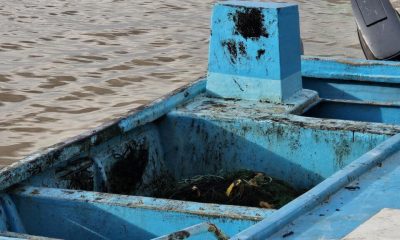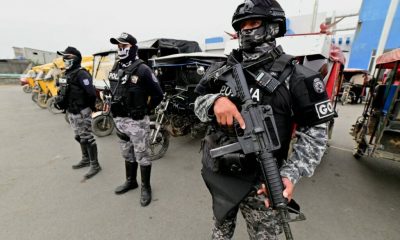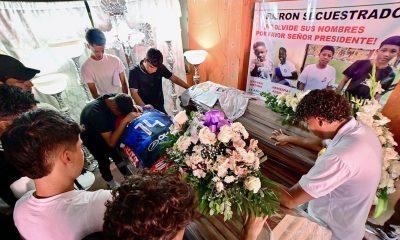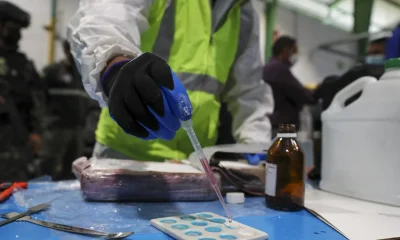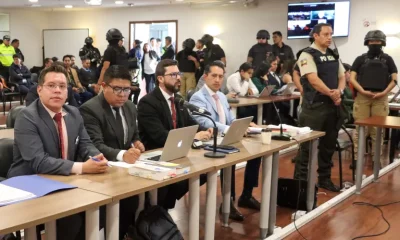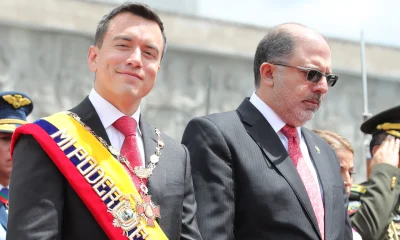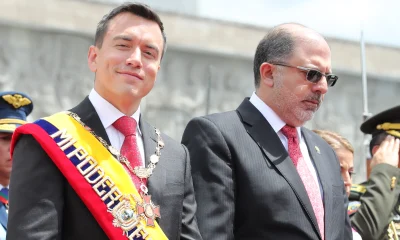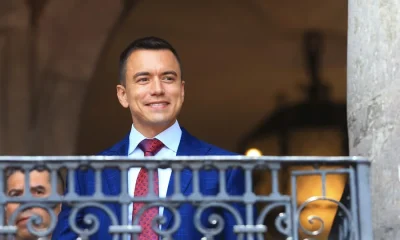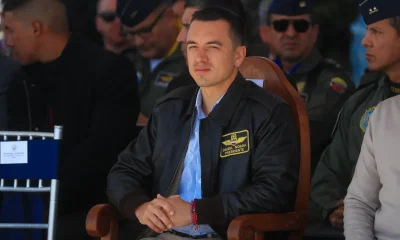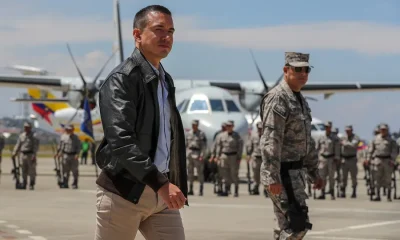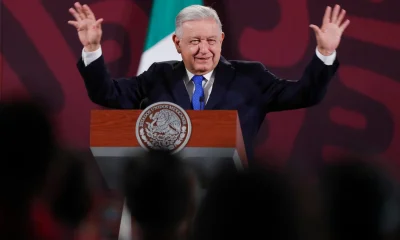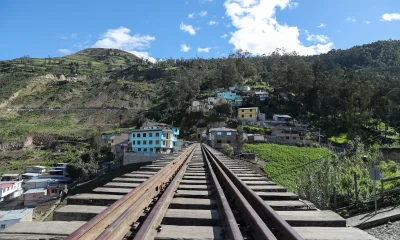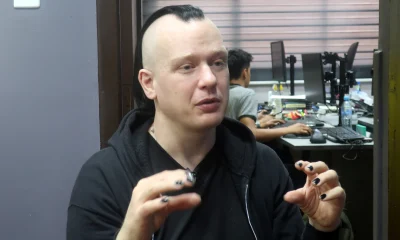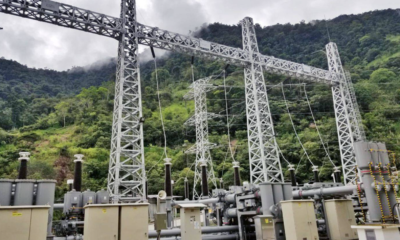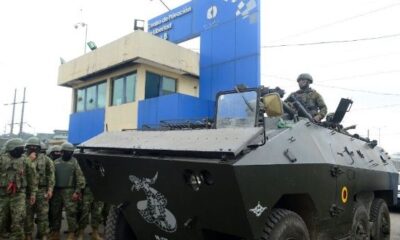International
60% of participation ninety minutes before the closing of the vote in Ecuador
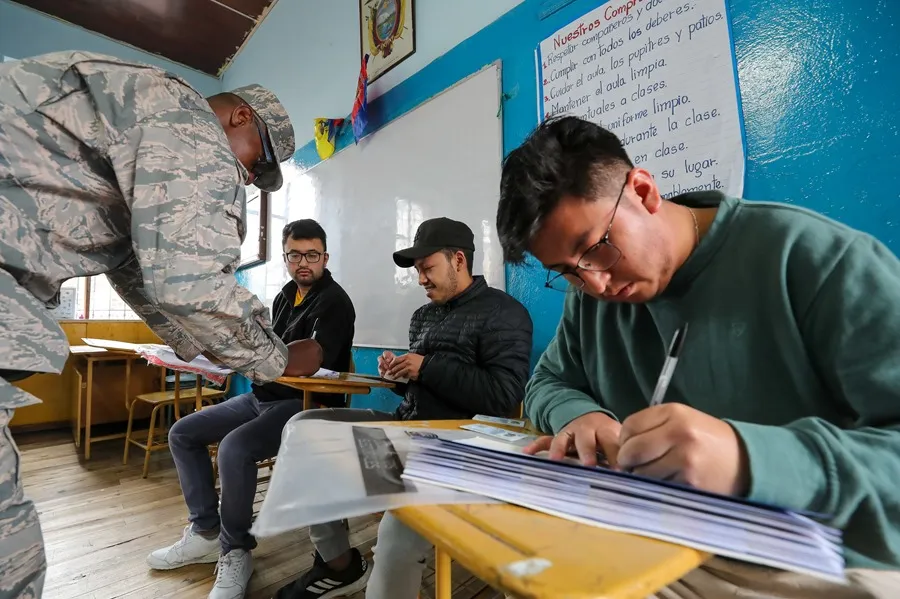
60% participation in the referendum was reported this Sunday by the National Electoral Council (CNE) ninety minutes before the polling stations were closed in Ecuador, where the day took place with “tranquility” until the murder of the director of a prison was recorded.
The percentage was confirmed by the president of the CNE, Diana Atamaint, in the second report on the electoral process to which more than 13.6 million Ecuadorians are summoned to answer eleven questions related to security, justice, investment and employment.
Atamaint publicly invited the population to come to vote because “the country needs them,” he said in a public appearance.
This vote will be a turning point for Noboa, who plays in it the high popularity achieved in the first months of his mandate by having elevated the fight against criminal gangs to the category of “internal armed conflict.”
During the opening ceremony of the day, Noboa remarked that this referendum “will mark the direction of the challenge to face organized crime, the fight against corruption and job creation.”
“Today is our time to make history, to mark a before and after,” said Noboa, for whom “this consultation collects several political flags.”
The referendum is held at one of the most delicate moments for Noboa in the nearly five months he has been in power, with an international diplomatic crisis due to the assault on the Mexican Embassy to arrest former Vice President Jorge Glas and with an internal energy crisis with blackouts of up to eight hours a day this week.
In case of winning the plebiscite, Noboa will be reinforced with a view to the new general elections that will take place in less than ten months and where the president evaluates running for re-election, but if he loses he can be weakened for the remainder of his mandate, until May 2025.
Criminal violence has also rebounded in the week of the referendum with the murder of two mayors in rural towns in whose territories there is the presence of illegal mining, an activity in which organized crime has also incursion, which has drug trafficking as its main business.
Among the eleven questions there are five that imply changes in the 2008 Constitution approved during the presidential term of Rafael Correa (2007-2017), while the remaining six must be processed through the National Assembly (Parliament), in case of receiving the support of the population.
Most propose legal tools to strengthen the fight against organized crime, which is attributed the wave of violence that has led the country to be among the first in Latin America in homicides, with about 45 per 100,000 inhabitants in 2023.
Therefore, he proposes that the Armed Forces support the Police in operations against organized crime on a permanent basis, and that the military be in charge of controlling access to prisons, the epicenter of this crisis having been dominated until a few years ago by criminal gangs, with large arsenals of weapons in their possession.
It also seeks to allow the extraditions of Ecuadorians required by the Justice of other countries and raise the penalties for crimes related to organized crime, as well as eliminate the prison benefits for several of these criminal figures.
To this is added the proposals to create a crime of possession and carrying of weapons for the exclusive use of the Police and the Armed Forces and that the weapons seized from crime immediately move on to equip police and military, in addition to expediting the process of expropriation of illegal property.
Other issues focus on establishing a system of constitutional courts, accepting international arbitrations in any jurisdiction and allowing hourly labor contracts.
In Ecuador, voting is mandatory for people between 18 and 65 years old, while it is optional for adolescents between 16 and 18 years old and also for those over 65 years of age, as well as for police, military and prisoners without a final sentence.
International
Police investigate deaths of Rob Reiner and wife as apparent homicide
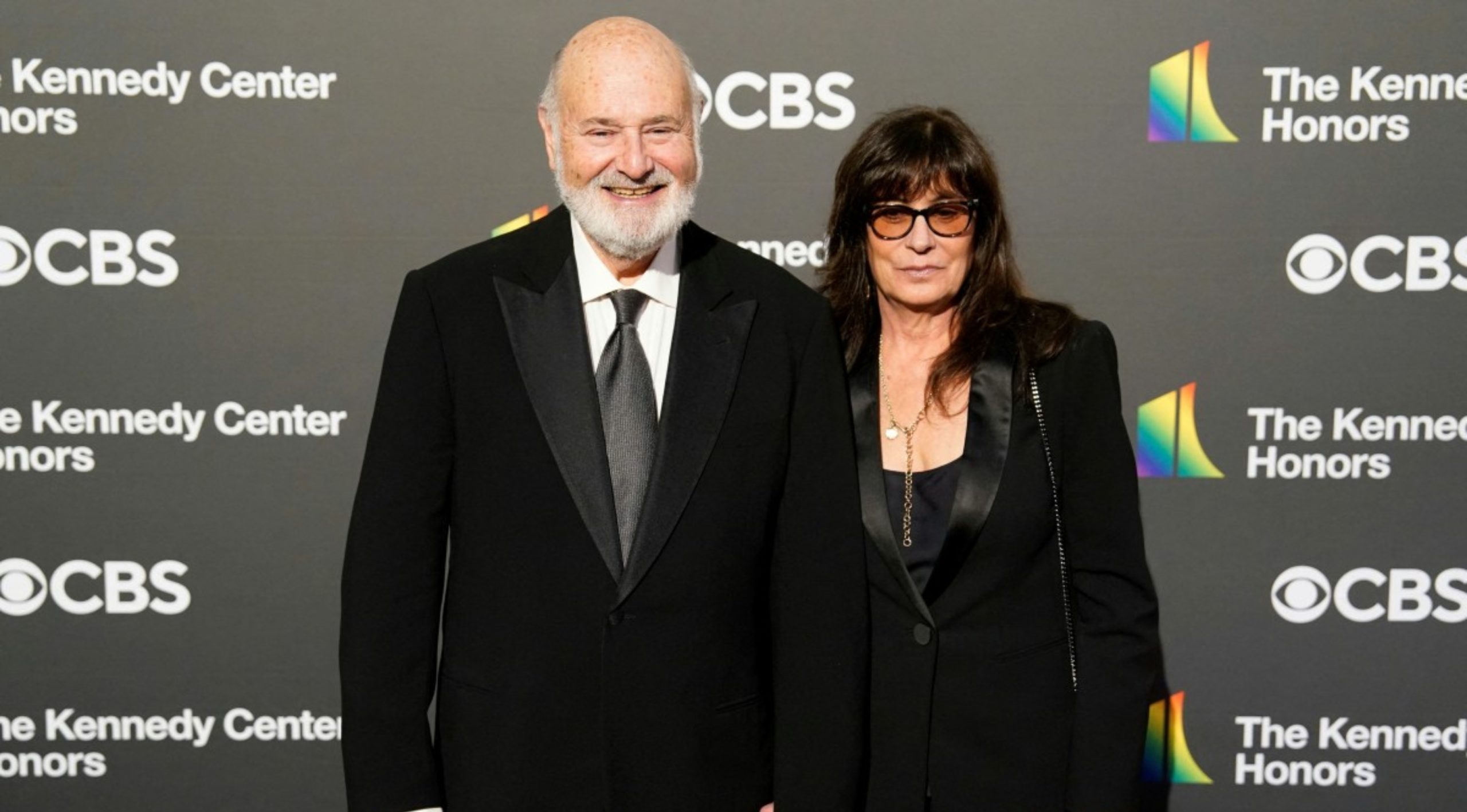
The Los Angeles Police Department (LAPD) is investigating the deaths of Hollywood actor and filmmaker Rob Reinerand his wife as an “apparent homicide,” amid a wave of tributes to the director of classics such as When Harry Met Sally.
According to U.S. media reports on Sunday, Rob Reiner and Michele Singer Reiner were found dead at their Los Angeles mansion with what appeared to be stab wounds.
Several political figures shared messages of condolence following the reported deaths of the director of A Few Good Menand his wife.
While the LAPD did not officially confirm the identities of the victims, it stated that homicide detectives were dispatched to the Reiner residence.
“At this time, no additional details are available and the investigation into an apparent homicide is ongoing,” the Los Angeles Police Department said in a statement posted on social media.
LAPD Deputy Chief Alan Hamilton told reporters that no arrests have been made and that no individuals are currently being questioned as suspects.
“I’m not going to confirm whether anyone is being questioned at this moment or not. We are going to try to speak with as many family members as we can,” Hamilton said.
CNN reported that a family spokesperson confirmed the deaths of Reiner and his wife.
California Governor Gavin Newsom, former U.S. President Barack Obama, and former Vice President Kamala Harrisissued statements expressing their condolences.
International
U.S. and Mexico Reach Deal to Address Water Deficit Under 1944 Treaty
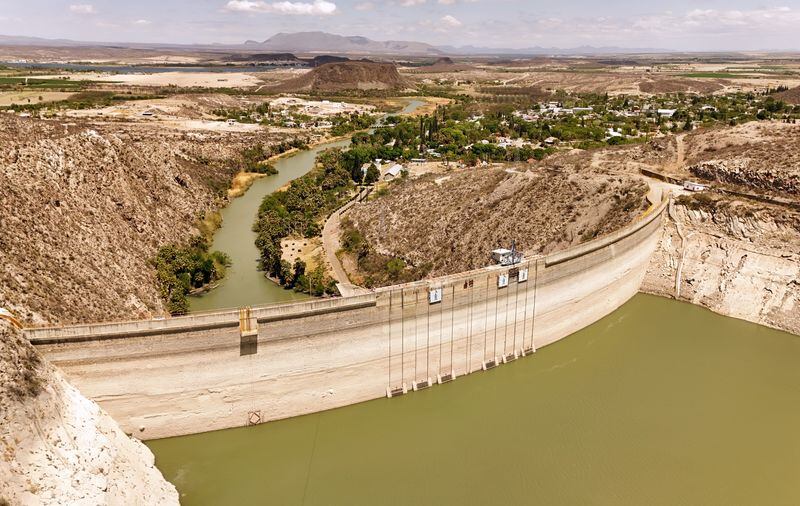
The United States and Mexico have reached an agreement to comply with current water obligations affecting U.S. farmers and ranchers and for Mexico to cover its water deficit to Texas under the 1944 Water Treaty, the U.S. Department of Agriculture said in a statement.
The department уточified that the agreement applies to both the current cycle and the water deficit from the previous cycle.
On Monday, U.S. President Donald Trump accused Mexico of failing to comply with the water-sharing treaty between the two countries, which requires the United States to deliver 1.85 billion cubic meters of water from the Colorado River, while Mexico must supply 432 million cubic meters from the Rio Grande.
Mexico is behind on its commitments. According to Washington, the country has accumulated a deficit of more than one billion cubic meters of water over the past five years.
“This violation is severely harming our beautiful crops and our livestock in Texas,” Trump wrote on Monday.
The Department of Agriculture said on Friday that Mexico had agreed to supply 250 million cubic meters of water starting next week and to work toward closing the shortfall.
Agriculture Secretary Brooke Rollins, quoted in the statement, said Mexico delivered more water in a single year than it had over the previous four years combined.
Trump has said that if Mexico continues to fall short of its obligations, the United States reserves the right to impose 5% tariffs on imported Mexican products.
Mexico’s Deputy Foreign Minister for North America, Roberto Velasco, said that a severe drought in 2022 and 2023prevented the country from meeting its commitments.
International
Several people shot in attack on Brown University campus
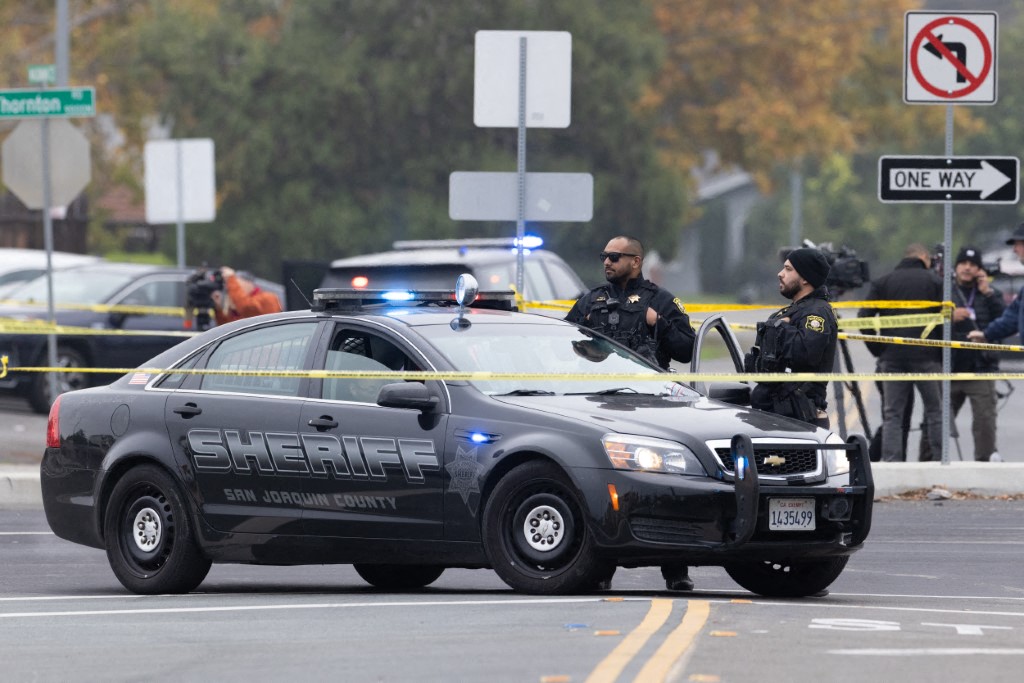
Several people were shot on Saturday in an attack on the campus of Brown University, in the northeastern United States, local police reported.
“Shelter in place and avoid the area until further notice,” the Providence Police Department urged in a post on X. Brown University is located in Providence, the capital of the state of Rhode Island.
U.S. President Donald Trump said on his social media platform Truth Social that he had been briefed on the situation and that the FBI was on the scene.
At 5:52 p.m. local time (11:52 p.m. GMT), Brown University said the situation was still “ongoing” and instructed students to remain sheltered until further notice.
After initially stating that the suspect had been taken into custody, Trump later posted a second message clarifying that local police had walked back that information. “The suspect has NOT been apprehended,” the U.S. president said.
-

 Central America4 days ago
Central America4 days agoHonduras election crisis deepens as CNE president denounces intimidation attempts
-

 International4 days ago
International4 days agoCuba battles out-of-control dengue and chikungunya epidemic as death toll rises to 44
-

 International4 days ago
International4 days agoColombia says it would not reject Maduro asylum request as regional tensions escalate
-

 International1 day ago
International1 day agoPolice investigate deaths of Rob Reiner and wife as apparent homicide
-

 Central America2 days ago
Central America2 days agoPanama seizes over three tons of drugs hidden in Caribbean port container
-

 International3 days ago
International3 days agoSeveral people shot in attack on Brown University campus
-

 Central America1 day ago
Central America1 day agoOAS urges swift recount in Honduras as election results remain uncertain
-

 International4 days ago
International4 days agoEcuador on track for record violence as homicides hit highest level in Latin America again
-

 International3 days ago
International3 days agoU.S. and Mexico Reach Deal to Address Water Deficit Under 1944 Treaty

























